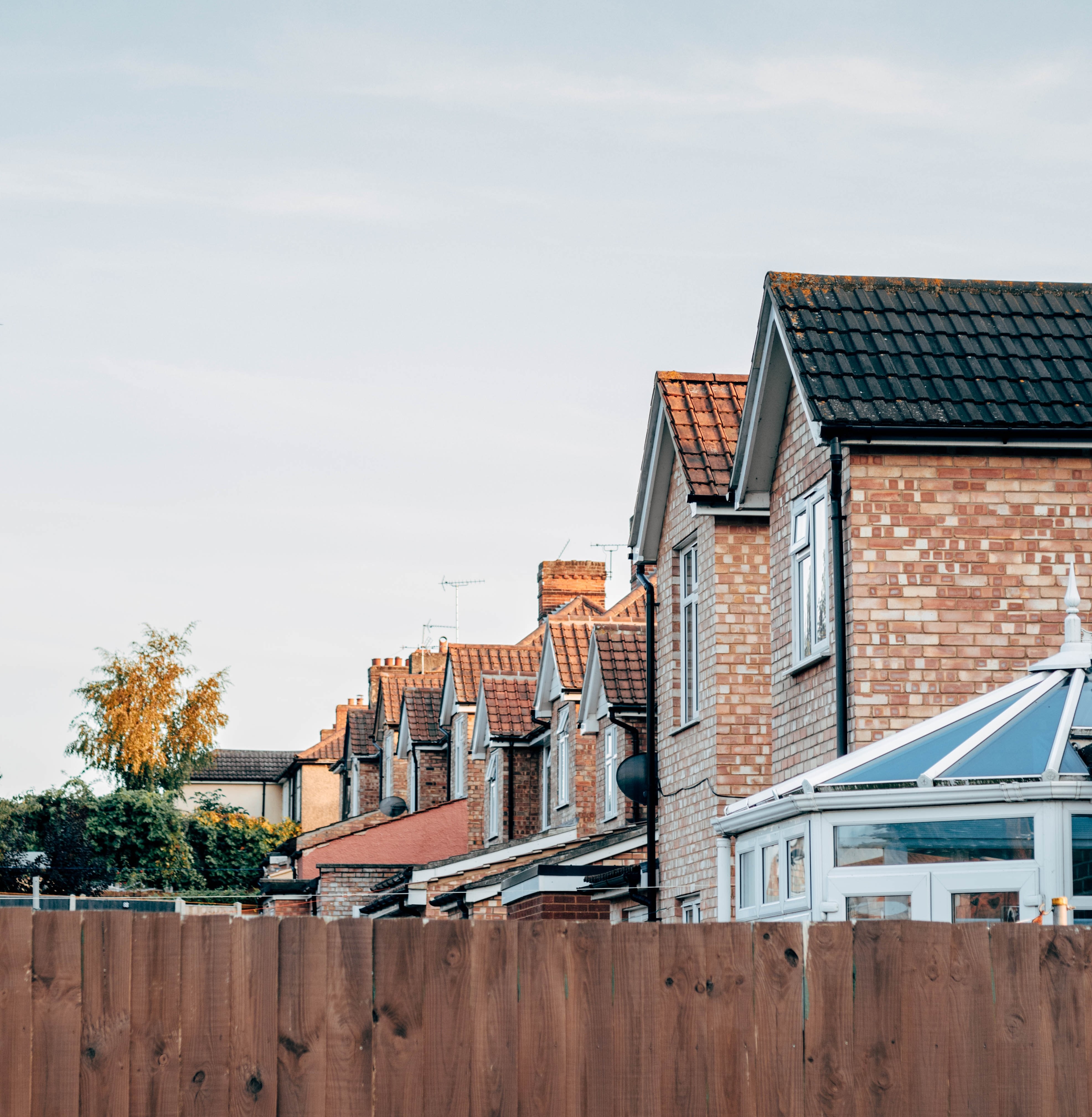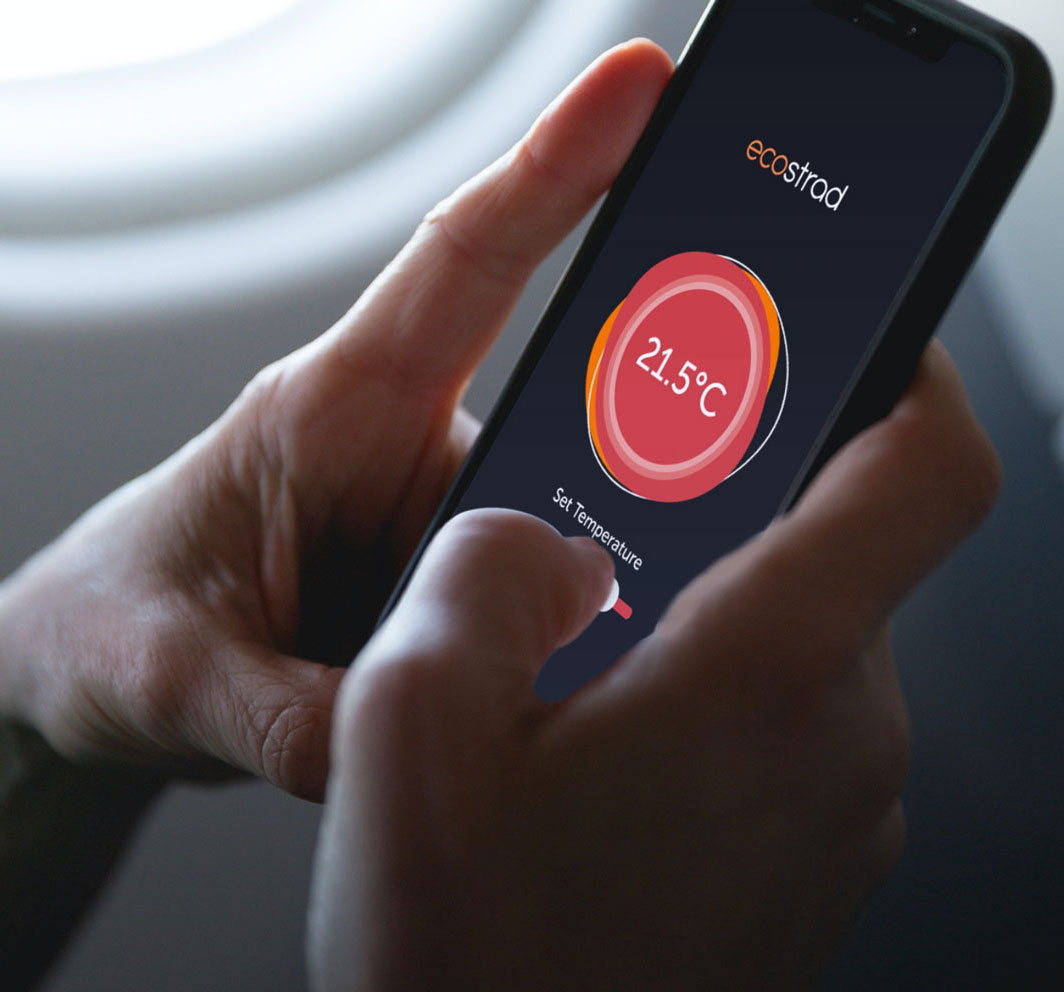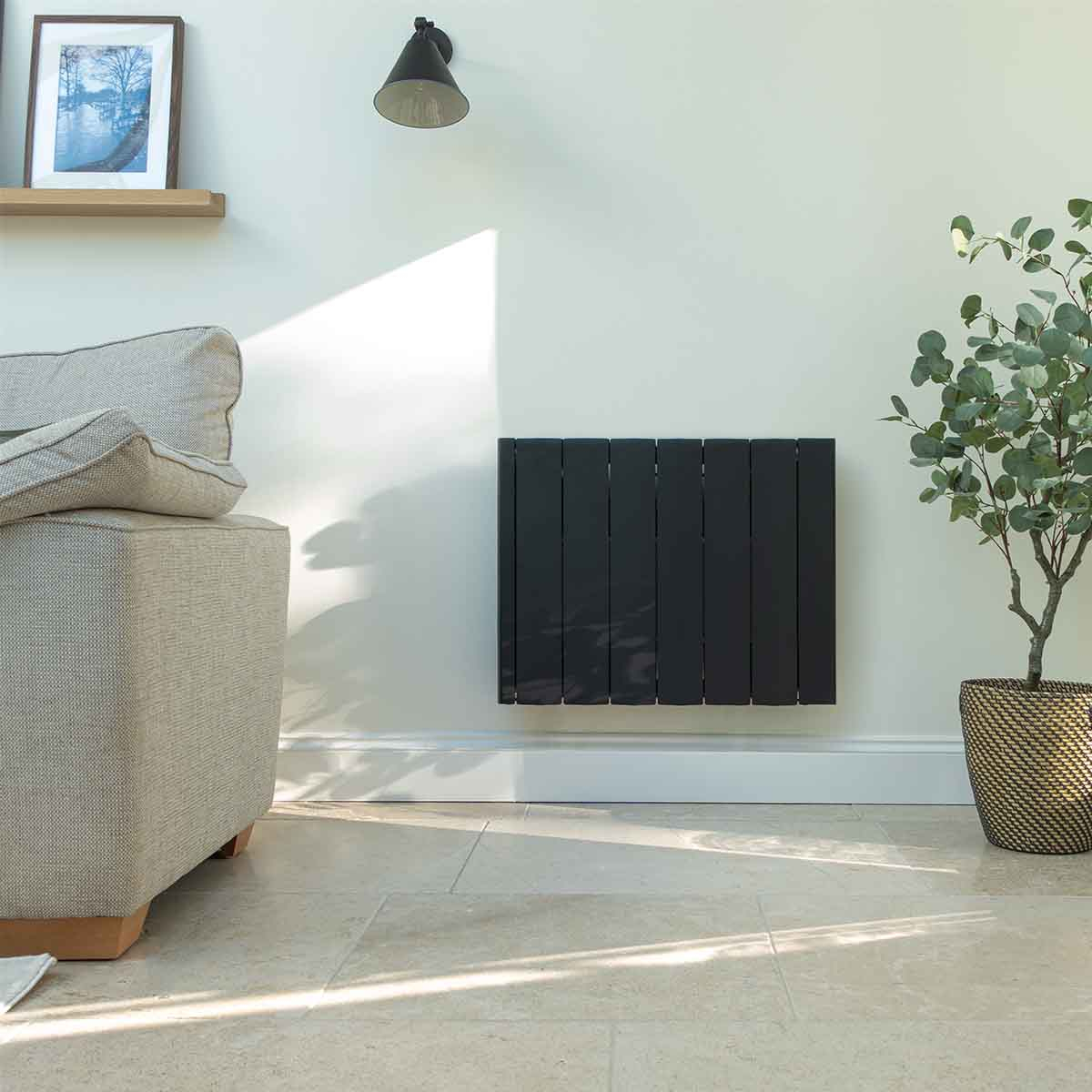

Last updated: May 2023
Energy is certainly a hot commodity these days. Rising bills, dropping temperatures - we’re all looking for ways to warm our houses comfortably without shelling out a fortune. Keeping your heating at a low temperature all day long is an oft-cited approach, but unless your house is very well insulated or particularly prone to condensation, it’s not a method we recommend. Read on to find out why this is, what the experts have to say, and for our tips on keeping your home warm for less this winter.
Should I leave my heating on low all day?
The answer can depend, but on the whole, it is not recommended. This is due to the black-and-white fact that even a house with the highest level of insulation is always losing a small amount of energy when the heating is on, so if you have your heating on all day, you’ll be losing energy all day.
The government’s energy price guarantee has frozen the unit price of energy until April 2023 (at which point, the price is set to rise once more), but this does not come in the form of a bill deduction. It is a limit on the price per kilowatt hour (kWh) energy firms can charge you - so if you use more energy, your bills will still be high. As such, only using your heating when necessary is what we recommend.


What's the thinking behind it?
In some ways, it does make sense. If you have a centralised boiler system, heating it up from cold a few times a day does sound expensive - taking a radiator from 7°C to 21° seems like it would consume more energy than keeping one at a steady 14°C throughout.
This is not really the case though, as having your heating running all day every day quickly adds up in the long term, even if heating your home from scratch requires more energy in a short burst. If your home is poorly insulated (as many homes in the UK are), you’ll be steadily losing energy throughout the day when the heating is on constantly, and never really benefiting from the warmth due to it being at such a low level.
Most homes also find that all-day heating is not necessary. During the night when you’re bundled under a thick duvet is not typically a time your radiators need to be emitting heat, even if it is at a more conservative 14°C or so. This is the ideal time to save some money on your heating - not be paying more for it.
What the experts say
Our most trustworthy port of call for all things energy-efficiency, the Energy Saving Trust confirms that leaving your heating on all day in order to save money is a myth. According to them, having your heating on only when you need it is always best.
It’s worth mentioning that some engineers suggest leaving the heating on all day as a precautionary measure against condensation. As condensation forms within walls and on window panes in very poorly insulated homes, when the heating is turned on, that barrier of water needs to evaporate before any energy can go towards actually warming a room. As such, leaving the radiators on constantly is thought to keep dampness at bay. If your home is particularly prone to damp and condensation, it may be worth looking into this. If your primary focus is on cost trimming, leaving your heating on all day is not a recommended route.
“The key thing to understand here is that it's all about the total amount of energy required to heat your home.” - Money Saving Expert
Ways to stay warm this winter
So now we’re in agreement that keeping your heating on all day is not an economical nor energy-efficient way of beating the chill this winter, we’re here to divulge a few more concrete methods. We recently did a deep dive into the simple ways you can save money on energy costs this winter, so check out that blog for more tips.


1. Wrap up warm
A failsafe practice, wrapping up warm when at home is essential. Instead of heating a room in its entirety, heat the people first. A few thinner layers of clothing instead of one thicker one is preferable, as heat is able to lock in between the different fabrics and keep you well-insulated. Also, if you get too warm, it’s much easier to rectify!
2. Apply for insulation and heating grants
Aiming to lessen the impact of the UK’s cost of living crisis, the government has launched various grants and schemes designed to take the edge off of high energy bills. See our dedicated blog for an in-depth look at what’s on offer, but one worth paying attention to is the Energy Company Obligation (ECO) scheme. This initiative, aimed at improving the energy efficiency of lower income households, is designed to tackle carbon emissions and fuel poverty in one fell swoop. The ECO scheme provides eligible homes with a range of insulation upgrades: cavity wall insulation, loft insulation, and solid wall insulation to name a few - all of which help homes consume less energy. More information about the ECO scheme is linked here.
3. Schedule your heating
Having a streamlined weekly heating routine ensures your home is only using energy strictly when it is essential. Controlling your usage down to a tee will minimise wastage and as such, bills. Essentially, you’ll only be spending money when you need to be - it just makes sense. If your home heating system is unable to be controlled weekly, it is strongly recommended to consider upgrading. Electric radiators offer a seamless fit - there’s zero need for plumbing or pipework and can be controlled completely independently - so energy usage can be adapted to your specific use.
Personalise your heating with the Ecostrad iQ Ceramic
Our most comprehensive model, the Ecostrad iQ Ceramic comes with an array of features designed to give you the most detailed, efficient and customisable heating experience. Here’s three ways the iQ Ceramic can help your home consume less energy:
- Decentralised heating: A benefit of all electric heaters, the iQ Ceramic is able to be programmed and controlled separately to the rest of the heaters in your home. This makes it ideal for zoned heating - if you’re working in your home office, there’s no need for whole-home heating, for example, and with the iQ Ceramic, this is made easy.
- WiFi app control: Pairing up with a smartphone, the iQ Ceramic is able to be controlled completely wirelessly from anywhere in the world through the help of either the Smart Life or Ecostrad Ecosystem apps. Setting schedules, adjusting temperatures and staying on top of energy usage is all done in just a few taps.
- CeramiQ Heat Lock technology: With a series of ceramic stones at its core, the iQ Ceramic is able to retain all heat generated so it can continue to distribute warmth even after switch off. Giving off 50% of its heat through radiation, the iQ Ceramic delivers an elevated, durable level of warmth.
Coming in a choice of traditional white or eye-catching black, the iQ Ceramic range comprises multiple sizes and wattages, making it an ideal fit for every home.
In this review of the Ecostrad iQ Ceramic, we’ll be diving into everything this bestseller has to offer, including its flawless design, innovative heating technology, and fuss-free installation methods.
Reduce energy wastage by upgrading your heating today
Whether it’s through increasing the insulation in your home, setting detailed daily schedules, or switching to a highly energy-efficient heating solution like electric radiators, there’s multiple effective ways of reducing energy wastage out there. Unfortunately, keeping your heating on low throughout the day is not one that’s recommended. If your home could benefit from a smarter, more energy-conscious heating solution, our range of electric heaters are sure to fit the bill - all with no costly upheaval required.
Key learnings
- Keeping heating on low all day is unlikely to save money in the long run. There’s always heat loss when heating a home, and extending the time your heating is switched on will increase the amount of heat loss you end up paying for.
- There are a range of more reliable ways to reduce energy costs: wrapping up warm when at home, insulating your house to a higher standard, and ensuring you have a weekly schedule in place are just some.
- Electric heating presents a highly energy efficient alternative to central heated radiators. Designed to keep energy usage to a minimum, features like weekly programming and app control come as standard.







